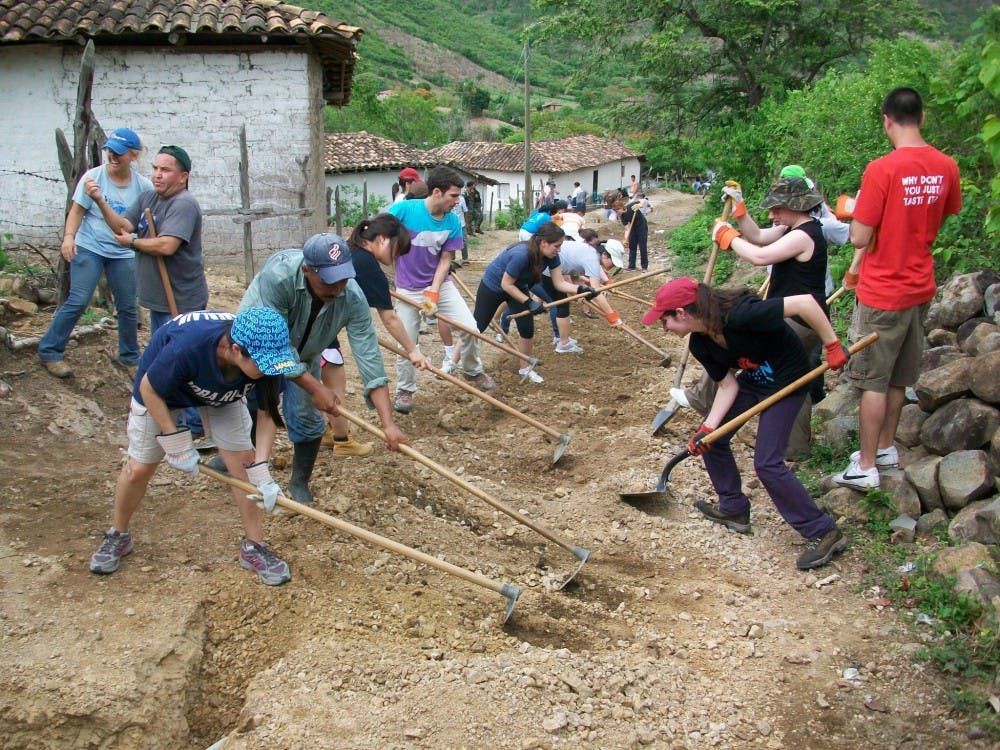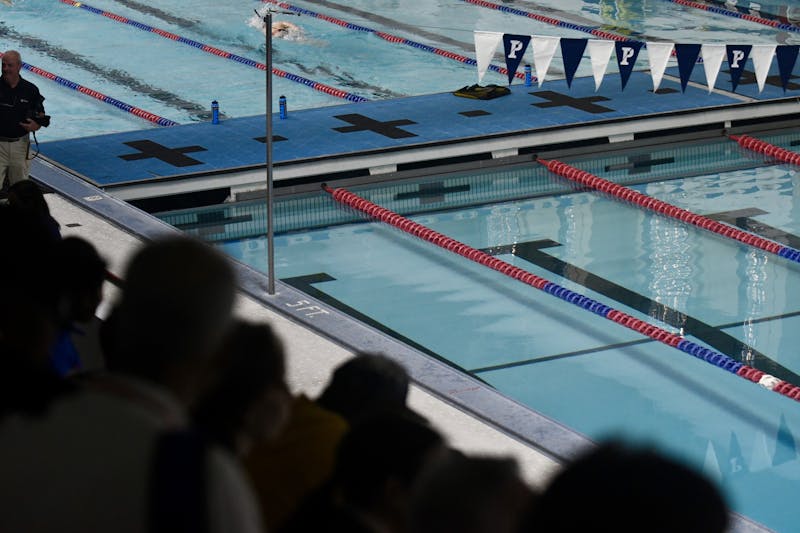
While many students were at home catching up on lost sleep from exam week, nine members of Penn’s chapter of Global Water Brigades were digging trenches in a rural village in Honduras.
Starting May 11, the students spent a week in the town of La Concepción as part of GWB’s effort to provide homes with a clean supply of running water. The group dug 1,150 meters of trenches, and laid and buried piping as part of the soon-to-be completed water system.
“The first day we were there we went to see what they already had, and as we were pumping out water you could see that the water was a lot darker than what we’re used to,” rising Engineering junior Luisa Valle said. “It’s not clean water even though it’s coming from the cleanest place they can get it from.”
Unlike many nearby villages, La Concepción sits at the same ground level as its major water source. As a result, electricity is needed to pump the water up to a storage tank where it can be cleaned and sent through pipes into homes. GWB’s job was to integrate the village’s electric pump and storage tank into a fully operational, clean water system, said rising College junior and GWB vice president Max Presser.
Rising College junior Naman Upadhyay was impressed with the community’s support for the project. “The community didn’t just stand by and watch us work,” he said. “They literally just took a shovel or a pick axe and started working right alongside us.”
Rising College Junior and GWB president Aarthi Ramesh was inspired to get involved last year by an email sent to pre-med students by Global Brigades, an umbrella group with nine branches, including dental and public health. The opportunity encouraged Ramesh to jumpstart Penn’s chapter, which had been absent from campus for several years.
Ramesh had seen other opportunities to work on global development projects, but Global Water Brigades stood out because of its accessibility, she said. “This was different for me because you’d be using your own hands to build and working alongside the villagers,” Ramesh added. “There was a need and I wanted to fill it. I’ve always been interested in mission work and this seemed right up my alley.”
Penn’s GWB chapter, along with four volunteers from the University of Michigan, was the first to work on the project, which Upadhyay says is expected to be completed sometime in June. Presser and Ramesh added that GWB hopes to expand on Penn’s campus through outreach with other groups, documentary showings and another trip next year.
“We’re focused on water in general, not just in one specific village,” Presser said. “Just because you’re thinking globally doesn’t mean you have to go all around the world. It can mean using a global perspective to make a change in your community.”
The Daily Pennsylvanian is an independent, student-run newspaper. Please consider making a donation to support the coverage that shapes the University. Your generosity ensures a future of strong journalism at Penn.
DonatePlease note All comments are eligible for publication in The Daily Pennsylvanian.







